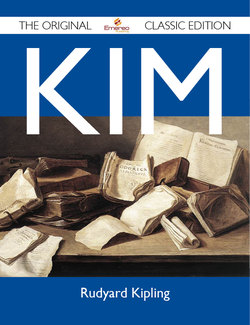Описание книги
A Best Kept Secret of literature: this is a canonical work that should be read by every school child as a superior example of English literature and the epitomy of the written Enlish language. <p> Kim is a wonderful story of an orphan in India (the part that is now Pakistan) in the late 1800s. Kim is the son of an Irish soldier raised by locals, familiar with the customs and languages of the Hindus and Muslims of the area who gets recruited by the British to spy for them. Kim acts as a guide for a Tibetan Buddhist priest who is on a quest in India, broadening his knowledge of the cultures of his world and giving him an excuse to travel even further. He comes upon his fathers regiment, and the officers of the regiment arrange for Kim to attend a proper British school. Throughout the story, a British spymaster is helping Kim receive an education (both formal and in the skills needed to serve the British rule in India) and arranging for Kim to carry messages and run small but important tasks for him. <p> Throughout the book, the only Indian group that is treated with disrespect is Hindus who have sacrificed their own cultures customs in order to get ahead in the British goverment. Frequently, the low opinion of the British held by the Indians (Muslim, Hindu, and Buddhist) is mentioned, and is usually pretty funny. The other European powers that are mention in the book are not treated with respect, but that is understandable in context. <p> Kiplings passion for the land he was raised in and his love for the peoples he was raised with is unmistakable, as is his love/hate relationship with the British government (N.B. he was not knighted in a time when most prominent authors were; he was entirely too candid about the British rule in India and the Crowns treatment of her soldiers). The language of the book is a little hard to follow, between regional loan words and the English of the time, but a patient and persistant reader will find the effort rewarded. <p> A great spy novel, read it for yourself and dont trust the critics who speak based on assumptions rather than knowledge.
